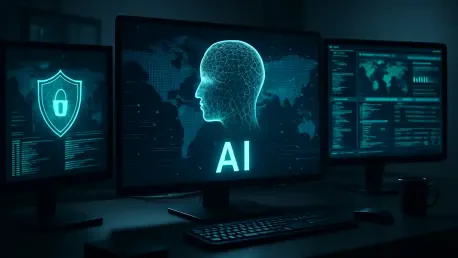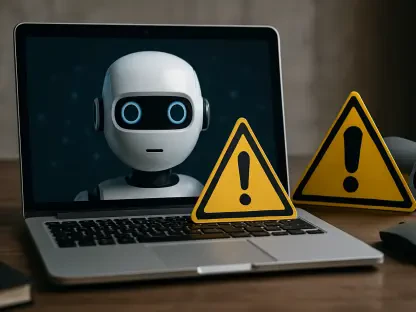Security Operations Centers (SOCs) have reached a critical juncture, where the convergence of escalating cyber threats and the constraints of existing resources demand innovative solutions. As organizations grapple with the complexity of modern cybersecurity, agentic AI is emerging as a game changer in transforming SOC operations. This market analysis delves into the factors driving this change, examining the role of agentic AI in enhancing efficiency, addressing workforce shortages, and optimizing existing technology to ensure robust security in an ever-evolving landscape.
A New Era for Cybersecurity: Necessity and Innovation
The landscape of cybersecurity operations is more dynamic and challenging than ever. With attacks increasing in frequency and sophistication, SOCs are under immense pressure to adapt. Traditional security measures struggle to keep pace with these threats, often plagued by inefficiencies like excessive false positives and cumbersome workflows. SOC managers must navigate these complexities without corresponding increases in budget or personnel, prompting a shift toward technological innovation as a viable solution. Agentic AI presents a compelling path forward, offering relief to beleaguered SOCs by optimizing existing resources and enhancing performance.
Current Market Trends: Addressing Efficiency and Workforce Shortages
Navigating Resource Constraints with Smart Solutions
False positives represent a significant hurdle in SOC operations, with studies indicating these can comprise up to 99% of alerts. The resultant analyst fatigue and time wastage render traditional methods inadequate in today’s threat landscape. Agentic AI intervenes by automating routine alert triage, enabling SOC teams to focus on genuine threats. Reports suggest some organizations have cut false positives by 90% after integrating AI, thereby preserving the integrity of analyst efforts and aligning directly with organizational resilience goals.
Global Imbalance: Bridging the Cybersecurity Skills Gap
The cybersecurity sector faces a daunting shortage of skilled professionals, with a deficit of four million roles globally. Faced with limited hiring capabilities, organizations are increasingly turning to agentic AI. Automating Tier 1 tasks within SOCs helps alleviate the pressure, allowing existing staff to address more complex incidents. This strategic use of AI not only mitigates burnout but enhances overall productivity, ensuring SOCs maintain security standards without expanding manpower unnecessarily. Data reveals that a majority of organizations impacted by staffing shortages find relief in agentic AI implementation, which refocuses expert attention where it’s most needed.
Future Projections: The AI-Driven SOC Landscape
Evolving with Adaptive Learning
Agentic AI is fundamentally dynamic, adapting continuously through data analysis, threat intelligence, and user feedback. This adaptability ensures ever-increasing precision in threat detection and response. Unlike traditional methodologies that plateau over time, AI systems offer a consistently improving framework for cyber operations. Future trends indicate a symbiotic relationship between AI advancements and human analysts, where technology complements and amplifies human judgment.
AI Integration: Transforming Security Operations
As businesses increasingly integrate agentic AI, they can expect enhanced operational outcomes, including reduced mean time to investigate and increased alert closure rates. Automated systems compress investigation phases from hours to mere minutes, providing a proactive defense mechanism against emerging threats. The role of AI in SOCs is set to evolve, shifting from a tool lightening workload to an indispensable partner fostering security innovations. Improved analyst productivity from AI assistance facilitates more strategic tasks, such as threat hunting, rather than endless manual investigations.
Crucial Insights and Strategic Pathways
Organizations exploring agentic AI integration should prioritize AI-driven methodologies for heightened security and optimized resource use. Leveraging AI’s potential in triage automation and threat assessment is imperative, ensuring proactive threat responses and continuous operational improvement. By comprehensively automating investigation processes and enhancing existing technological stacks, businesses can not only circumvent current SOC inefficiencies but align with long-term objectives like growth and resilience.
Transformative Implications of Agentic AI in SOCs
Agentic AI’s contribution to SOC operations has reshaped the cybersecurity fabric, addressing historical inefficiencies and fostering future readiness. The adoption of AI-driven methodologies optimizes threat detection, streamlines workflows, and elevates employee satisfaction amid modern cybersecurity pressures. Embracing this technology fosters a paradigm shift toward resource efficiency, expedited threat management, and robust protection strategies. The strategic deployment of AI SOC Analysts allows organizations to effectively combat cyber threats, achieving substantial alignment with the core objectives of resilience and operational growth.









